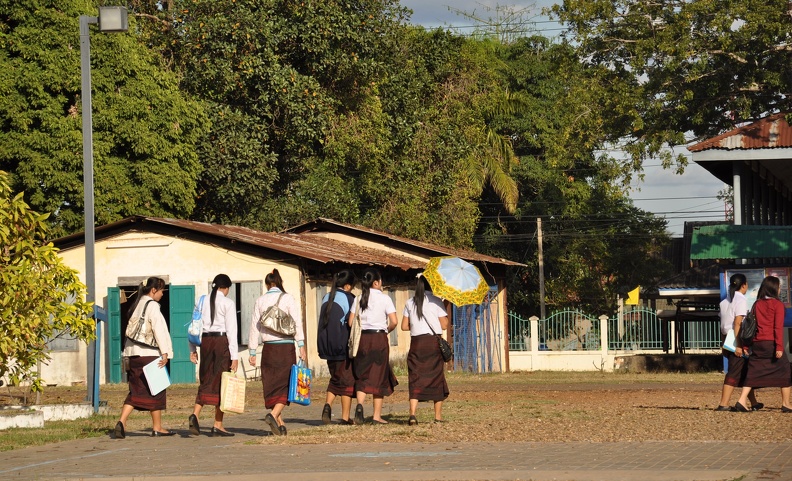Global Development Studies
Global Development Studies (formerly known as ‘Development Studies’ prior to September 2020) at the University of Helsinki offers an interdisciplinary space, fostering an open and democratic learning culture, where different viewpoints are respected and encouraged. Our academic community seeks an openness to other stories, disciplines and points of view, trying to understand the paradigmatic and methodologically different ‘other’. Therefore, we offer no “hegemonic” or exclusive school of thought on development, but rather promote a heterogeneous combination of thematic, theoretical and methodological approaches. Global Development Studies is like a home, with a shared sense of community and commitment, in which there are different rooms, where researchers and students are free to choose from different theoretical and methodological positions and (ex)change between them. Our scholars combine different theoretical, methodological, and analytical lenses to interpret cultural, political, economic, environmental, and social change, with a view to understanding and explaining complex processes of societal transformations, occurring within and across a combination of scales, from local to global, analysed from the perspectives of historical as well as contemporary contexts.
Because of the profound influence of the idea of “development” in both historical and contemporary engagements between the Global North and Global South, the critical study of the construction of meanings of this core concept and the resulting multiple interventions and policies constitute a central feature of the field. The contemporary boundaries of development, both conceptually and geographically, are fluid, dynamic, and contested. Global Development Studies critically analyses development and the practices of “developmentalism” as a complex of interests, discourses and actions, wherein people, movements, local struggles, everyday lives and concrete situations are studied alongside “official” development policy and practice and development cooperation.
Traditionally, development studies as a field of teaching and research has had a focus on studying the ‘problems’ of developing nations. Along the way, the focus expanded to consider the relationships between “developed” and “developing” societies, and the roles played by various institutions and structures existing within and between them, and the effects these relations have on processes of social, economic, political, and environmental change. Today, critical perspectives in development studies have emerged that attempt to engage with non-Western ontologies, and with literature and other sources of knowledge referring to diverse epistemologies, with the aim to transcend the previous limitations of dominant Eurocentric constructions of development, and to recognize not only the definitions devised and promoted by the Global North, but also those being produced and practiced by the Global South. Recent scholarship increasingly emphasizes the importance of studying global processes and relations, including the diverse trajectories and movements of the Global South, the mechanisms of economic growth, as well as the processes that produce and reproduce global poverty and inequality, the unequal relations of power, domination and exploitation, and processes of environmental degradation and “sustainable” alternatives. The impact of global economic, political and social forces, and the processes of “global development”, seemingly now connect us all, but they also lead to different outcomes for a range of peoples and groups. “Globalisation” and “Global Governance” have thus entered into the Global Development Studies lexicon, in part to conceptualize but also to provide a sense of order for consequential complex processes and relationships. Whether these attempts have been successful is a matter of recurrent debate.
It is a characteristic of Global Development Studies that it offers a space for normative, moral, and value concerns, and an opportunity for critical self-reflection on ethical issues and the politics of representation. “Development” itself is an inherently normative concept and deals with fundamental philosophical and practical questions of what constitutes the “Good Life”. It is, thus, common for researchers and students in Global Development Studies to be motivated by deeply held concerns for social justice, human and more-than-human solidarity, and mutual respect between diverse peoples and cultures, and to reflect these concerns in their research and academic debates. A critical analytical approach to the study of power relations is, therefore, an important part of the field, as are aspirations for human liberation, solidarity, acts of resistance, and diverse praxes of social transformation. This orientation entails focusing on people’s “everyday” experiences and their own definitions and understandings of development, as well as the overarching political economy and political ecology of development. Different actors, at multiple scales, and with different degrees of authority and power, all seek to (re)formulate, (re)interpret, (re)negotiate, and contest the existing ideologies and structures that shape development processes in the world today. These social struggles, and the alternatives in thought and action that they produce, are very much a part of our approach to Global Development Studies, and our understanding of how people think and act in the world. Ultimately, “Development” is about a set of beliefs and assumptions about the nature of social progress, our perceptions of the world which model reality, as much as it is about observable socio-economic endeavour. Distinguishing the “Myth(s) of Development” from the complex realities is one of the greatest analytical challenges we face.
Our Global Development Studies community at the University of Helsinki seeks to face these many challenges. We aim to provide researchers and students with a supportive community and academic space which encourage thought-provoking insights into the highly complex and dynamic processes of social transformation occurring throughout the world today. We are committed to offering our researchers and students a mutually supportive and inspiring environment that provides a wide theoretical and thematic curriculum, fostering independent, critical, and forward-looking thinking on development, and enhancing a set of analytical and practical skills to equip them to comprehensively grapple with development in both its conceptual and practical dimensions.
(This text is a compilation of reflections on “What is Development Studies” prepared by the staff and students of Development Studies at the University of Helsinki, last modified in September 2018; discipline name updated September 2020)
